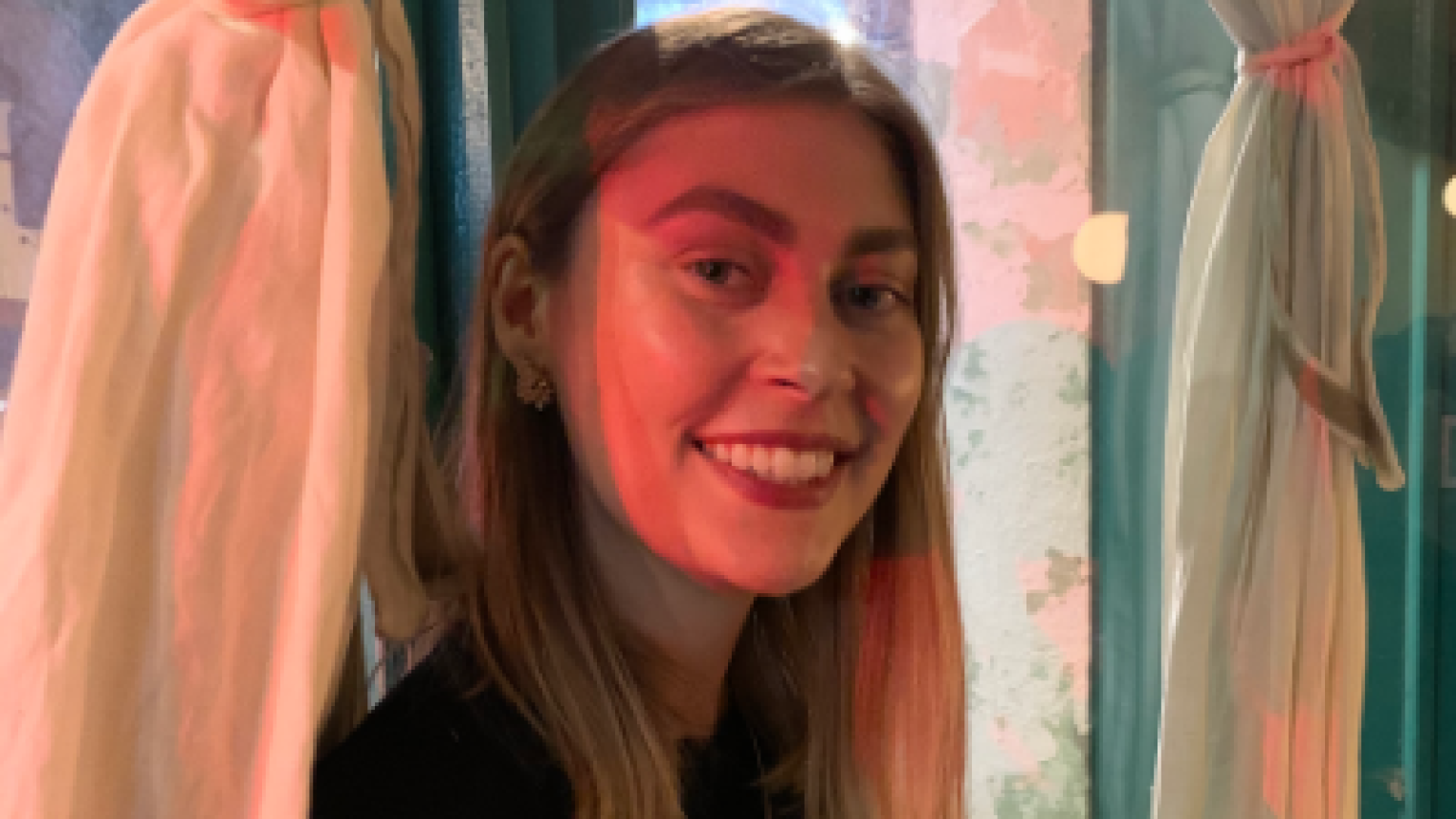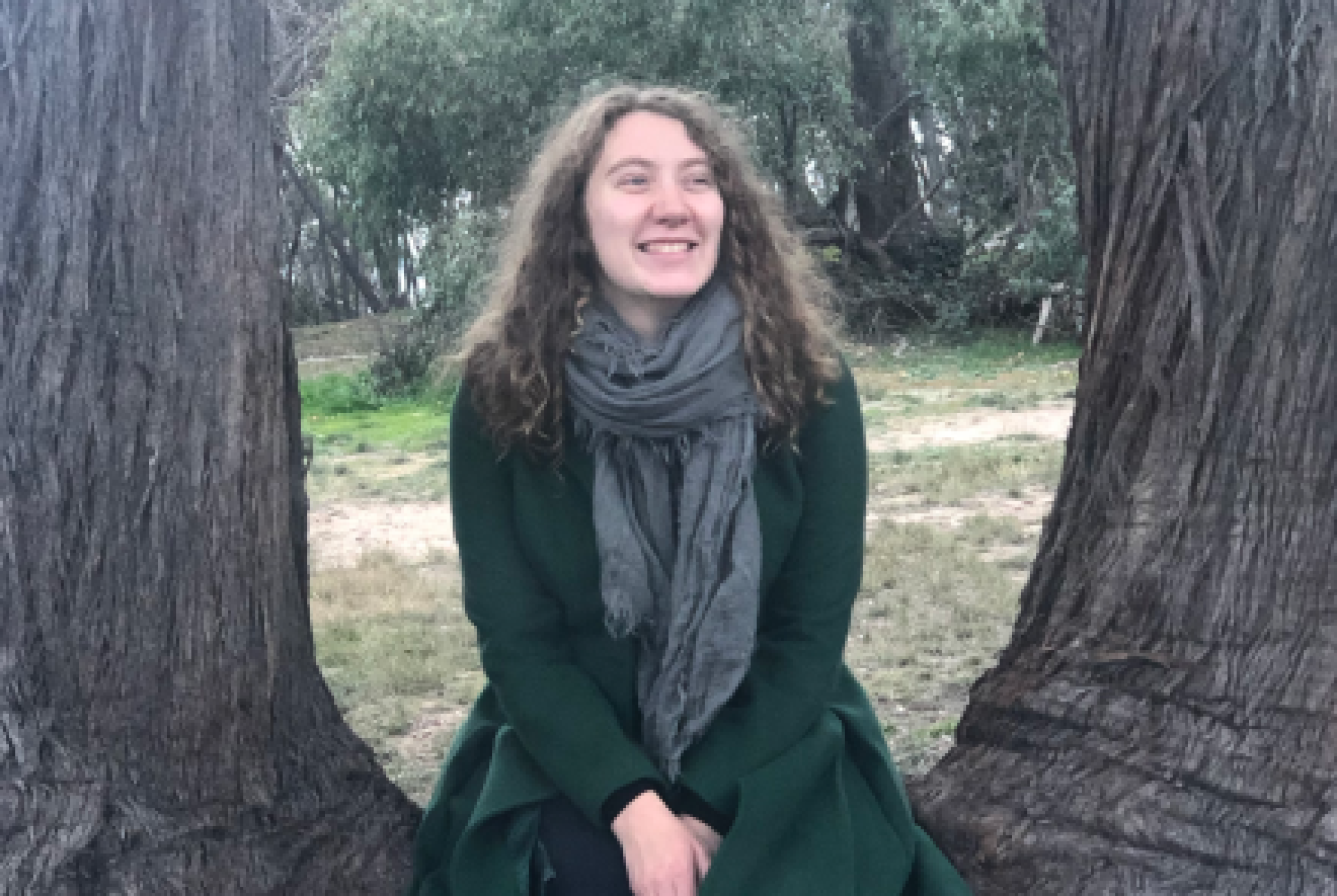Connecting climate science and public policy

Gabriella Warden grew up on her family’s cattle farm in rural New South Wales and experienced the first-hand impacts of climate change. Living through the Millennium Drought on the farm she vividly remembers watching her dad hand feed the cattle when there was no grass due to the water shortage. But it wasn’t until high school that she was introduced to climate change as a scientific phenomenon. A revelation delivered by her year seven science teacher about of the greenhouse effect struck a nerve.
“I remember my disbelief - humans were knowingly driving this huge, existential threat? That’s when I decided I wanted to work in climate change. Although it’s only been in the last few years that I considered doing my Master’s,” she said.
Prior to studying with Crawford, Gabriella worked in global communications for a company specialising in corporate sustainability and climate change solutions. This work environment sparked her interest for further professional development.
Gabriella found herself eager to read, research and learn more about effective climate change solutions and how policy can drive them. That’s when she began thinking seriously about graduate studies. After doing some research, she discovered Crawford School’s Master of Climate Change program. When COVID-19 hit the world, it gave Gabriella the final push to begin her studies and she started studying virtually at the ANU.
“Aside from being Australia’s leading public policy school, Crawford School offered a graduate program that combined the two things I was interested in: climate change and policy. Most other universities that I looked into offered degrees in either public policy or climate change, and the latter were generally science-focused,” said Gabriella.
Before Gabriella enrolled, she reached out to the course convener, Dr Rebecca Colvin, to learn more about the degree and how she could balance it with her full-time work commitments.
“Where I had not heard back or received impersonal, automated responses from other universities, Bec responded personally. She told me about ANU’s shorter graduate certificate programs as an entry point and to get a feel for the Master’s program, which could be studied online. My decision was then obvious,” according to Gabriella.
In addition to learning from some of the world’s foremost climate change and policy experts, Gabriella has said one of her most memorable experiences was visiting the ANU campus after moving to Canberra.
“Attending my first in-person class and meeting the lecturers and students I’d connected with was pretty special after studying with them online for a year,” Gabriella said.
“As well as being a source of knowledge, all of our lecturers have an unwavering belief in the capabilities of students. Personally, this has helped me back up my knowledge, skills and expertise with confidence. The lecturers also seem to have unending time to provide support, feedback and advice to students, even during teaching breaks and holidays. Despite the confronting realities of climate change, their passion and pragmatic optimism about the opportunities for action we still have left has been a continuing source of inspiration that I will take with me beyond my graduation,” said Gabriella.
Now that Gabriella has graduated, she is looking forward to helping to bridge the gap between climate science and public understanding. Left unchecked, misunderstandings about the realities of climate change can lead to confusion, greenwashing- and ultimately inaction or less effective action. She sees addressing these misunderstandings through clear communication as being essential to designing effective climate policy and other solutions. This is something she can see herself working to drive. Through courses like Dr Colvin’s Communicating for Environment and Climate Policy, Gabriella’s degree has equipped her with the tools and insight to work on this.
“Climate change is a ubiquitous challenge. It touches everything, with unique impacts across every sector and society. No matter where my career takes me, the knowledge, skills and connections I have made during the Masters of Climate Change program will provide a solid foundation,” said Gabriella.
